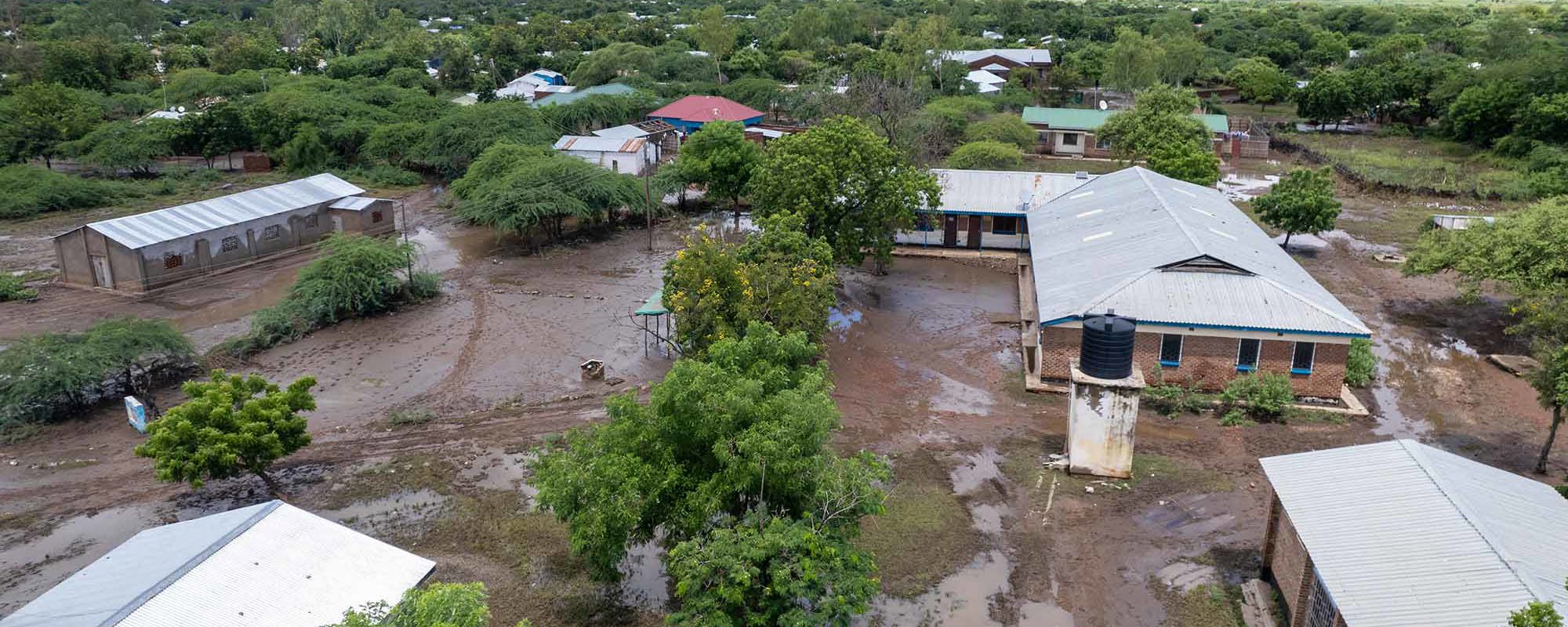

As the Climate Crisis Escalates, Building Resilient Health Systems Is Imperative
When torrential rains from Cyclone Freddy unleashed a flood in Malawi earlier this year, the extreme weather event claimed more than 1,000 lives and upended the livelihoods of millions of people. The floods also swept away a wealth of essential health data and medical supplies, medicines, equipment and infrastructure, mosquito nets, antiretroviral drugs (ARVs), contraceptives, tuberculosis (TB) medicines and many other items — leaving many people exposed to public health risks and disease.
As the world prepares for the 2023 United Nations Climate Change Conference (COP28), in Malawi, we are still fighting to recover from the devastating effects of that cyclone on our whole health system and health service delivery.
Of all those individual and collective tragedies that Malawians suffered from Cyclone Freddy, one in particular keeps me awake at night. The Malawian health system, like many others in Africa, stores patients’ health data in health passports — booklets that neatly bind together patients’ history of illnesses and treatments, as well as their health challenges and triumphs. When the floods tore through villages in southern Malawi, they carried with them most of those essential health items that held together many of our citizens’ health data, as well as other essential health commodities.
It soon became clear that we had a huge challenge on our hands. Patients who were on long-term treatment for diseases such as HIV and TB would arrive at a health facility where medical staff would ask for information regarding the drugs they were on. Some patients, not knowing the names of their medicines, would often just offer the color of their drugs. “The white ones,” some would say, leaving doctors and other health professionals at a loss, wondering how and with what drugs they would help the patients restart treatment.
This dilemma has taught us that digitizing health data is an urgent imperative in our country. Not only because it will help put patients back on the right treatment if they are flooded out of their neighborhood when the next cyclone hits, but also because electronic health records will enable us to use large amounts of information to establish trends and build knowledge that can help us revamp health delivery, improve efficiency and quality of care while better preparing for future disease outbreaks.
It also shines a spotlight on the challenges we face in health systems because of a changing climate. There are some specific health impacts that relate to climate change that we need to deal with, such as the increase in devastating weather events like Cyclone Freddy and shifting trends of vector-borne diseases like malaria, water-borne diseases like cholera, and water-washed diseases like schistosomiasis or scabies, just to mention a few. But there are also many things that we need to do to build climate-resilient health systems.
What Cyclone Freddy showed us is the urgency with which we need to act. The world must remember that in Malawi and other low- and middle-income countries, we are suffering the brunt of climate change now. The impact comes in the form of diseases, infestations, injuries, and deaths from events like cholera surges after extreme weather, including cyclones. And it gets worse—there are long-term complications in our prevention and treatment programs due to the loss of essential medical supplies, equipment, drugs, and health infrastructure.
As the world gathers in Dubai for COP28 at the end of November, there is an opportunity through the climate conference's first Health Day to establish health as a critical element of the climate response. The African health community is demanding that health be a critical part of the climate change deliberations agenda. We must mitigate the contribution of greenhouse gases so as not to reach the devastating 2 degree threshold, but this will take time even if we act with the urgency we need. The communities most affected by climate change are also the ones who bear the least responsibility for the change—they are already suffering climate-related existential threats. Many of those threats have been experienced through devastated health systems, including infrastructure damage, poor water, sanitation and hygiene, plummeting treatment outcomes for major infectious diseases such as HIV and TB due to poor nutrition, and the surge of deaths from diseases like malaria and cholera.
We must adapt our public health system to a changing climate. Responding to the worsening patterns of disease and building resilient and sustainable systems for health remains our North Star. It is a way to generate a sufficient tide that can help lift every boat, whether during cyclones or as we get battle-ready for the next pandemic. Our first priority is to convert all the remaining health passports and other health data in Malawi into digital health records that cannot be swept away by calamitous floods. Secondly, we will intensify community awareness on health and climate change impacts through health advisories on extreme weather events. Lastly, we will build capacity for health workers around health and climate change, and implement contingency plans for emergency preparedness, response, and recovery.
This op-ed was first published in Newsweek.
Photo: The Nchalo Hunger Community Health Center in Malawi has been closed indefinitely due to Cyclone Freddy floods.
© UNICEF/UN0803549/Malawi







